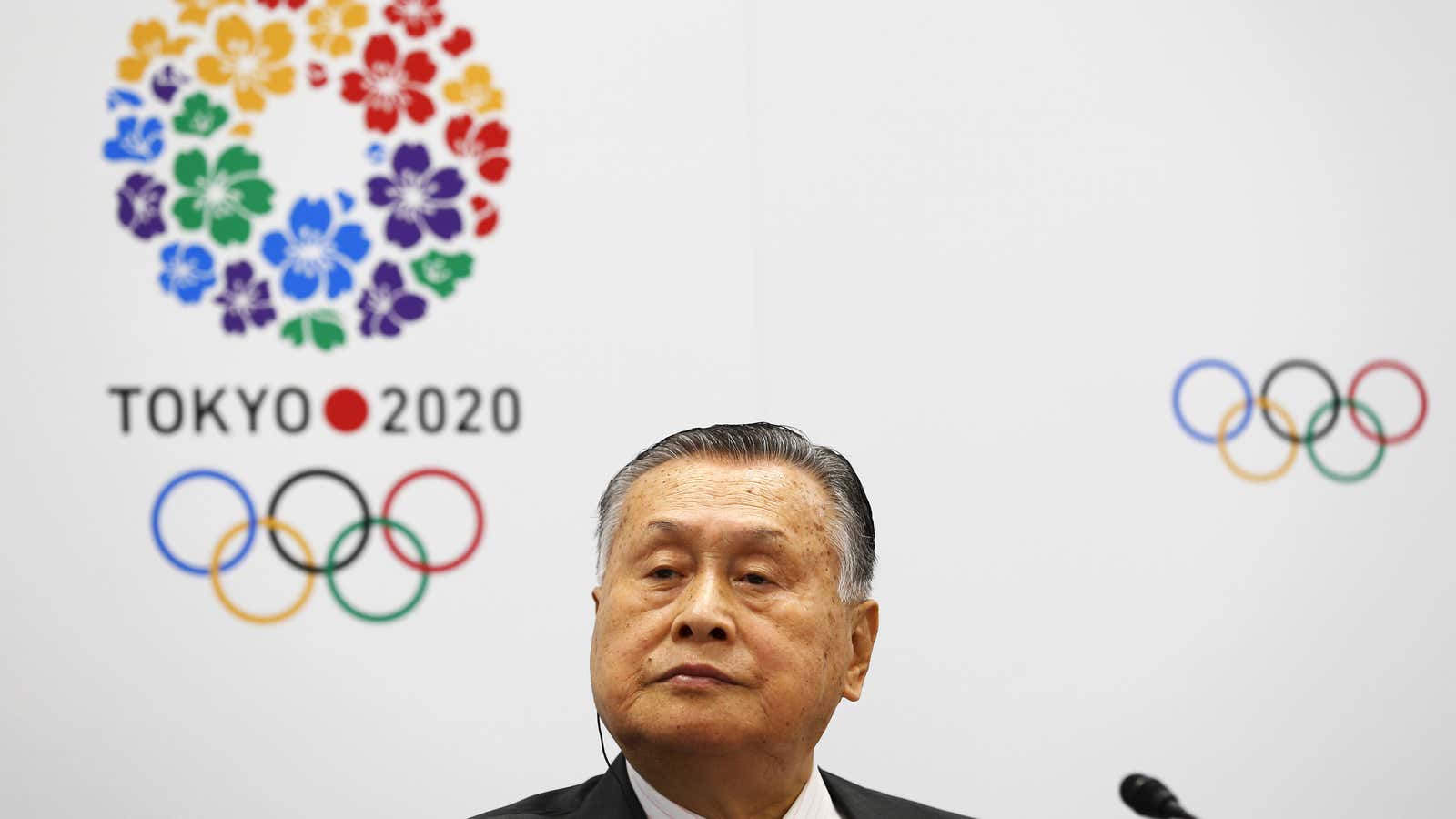There was already plenty of controversy surrounding the Summer Olympics set to start in July, with the host nation of Japan still in a state of Covid-19 emergency. And now there’s this: the president of the Tokyo organizing committee has made derogatory remarks about women on boards.
During a Japan Olympic Committee Council meeting, addressing questions about the JOC’s policy to increase female representation on sports organizations’ executive boards to 40% or more, Yoshiro Mori, a former prime minister who is considered one of Japan’s most unpopular leaders, reportedly said: “On boards with a lot of women, the board meetings take so much time.”
“Women have a strong sense of competition,” he continued. “If one person raises their hand, others probably think, I need to say something too. That’s why everyone speaks.” His remarks reportedly provoked laughter from some JOC Council members. Worth noting: Out of the board’s 24 members, just five are women.
Mori, 83, has since apologized but said he would not resign despite public pressure to do so.
The sad state of gender diversity on boards
Mori’s comments weren’t just sexist. According to Adam Grant, a Wharton professor of organizational psychology, they were flat-out wrong.
“[I]t’s usually men who won’t shut up,” he tweeted, pointing to a study from Cornell University’s Johnson School of Business showing men tend to talk more in meetings, even when the majority of people in the room are women. Men also interrupt more. Gaining power seems to be correlated with talking more in meetings—but only for men, not for women. Another study shows that men not only speak more frequently during meetings but also speak longer.
Globally, women hold just 16.9% of board seats, according to a 2020 Deloitte report. The numbers are more dismal for women of color. Meanwhile, women who get to the top are more likely to be assessed on their voices and personality than men—ironic given that a study of 155,000 company conference calls over the past 19 years found that it was men who spoke 92% of the time.
Perhaps Mori simply hasn’t had a large enough sample size to accurately assess situations involving women on boards. According to a 2020 World Economic Forum report, Japan’s gender gap is the largest among all advanced economies in the world.
